Women's health
Community Health Worker (CHW) Grace Mgaiwa meets with Eliza Kazembe, 17, who is nine months pregnant. Grace, 35, oversees 22 households and has been a CHW since 2017. A maternal health home visit in Kamdzandi Village, not far from PIH-supported Lisungwi Community Hospital in Neno District, Malawi. Photo by Karin Schermbrucker / Partners In Health
DESPITE BEING CENTRAL PILLARS OF FAMILIES AND COMMUNITIES, WOMEN GLOBALLY CONTINUE TO BE THE MOST UNDERSERVED AND AT-RISK POPULATIONS.
Partners In Health strives to address women’s health inequalities by expanding access to women’s health services in the countries where we work.
We provide access to family planning, medical care for pregnancy and childbirth, antiretroviral treatment for pregnant women living with HIV and support for victims of gender based violence.
Approximately two-thirds of all our health care services are provided to women and their children—representing close to 1 million women’s health visits, family planning visits and deliveries each year.
Elevating the health and rights of women & adolescent girls is one of the greatest equity issues of our time. The disproportionate deaths of women around the globe are rooted in inequity and racism. The solution has always been the same, and yet, women and adolescents continue to be underserved for reasons related to geography, poverty, and gender power structures. COVID-19 is exacerbating these circumstances as health resources are being further divided, especially among the world’s poorest and most vulnerable communities.
These tragedies illuminate the fault lines of basic human rights, including gender and health equity. Addressing these basic human rights is a moral imperative, and we must work to strengthen the connections between the public sector and the communities being served by supporting a robust continuum of care, from community health to health centers and referral hospitals. Saving women’s lives and supporting their rights literally changes the health of a community.
In poor or remote communities, access to prenatal and obstetric care is often limited. Each year in developing countries, only about half of all pregnant women receive the recommended amount of prenatal care, and a quarter of all births occur without help from a skilled birth attendant. This is true despite the fact that potentially fatal complications occur in 15 percent of births.
Family planning is one proven method for safeguarding women’s health, but women in poor communities too often lack access to contraception due to high costs, long distances to clinics and gender power imbalances. If contraception were available, maternal mortality in poor countries could be reduced by as much as one third.
Our belief in every woman’s right to high-quality, specialized care is supported by countless studies showing the ripple effect of prioritizing women’s health. When women are healthy and empowered, so too are families, communities, and countries around the world. That’s why women are at the center of PIH, guiding our work improving health care for impoverished communities as both patients and staff.
PIH provides two-thirds of its services to women and their children, whose needs inform our programs. In countries with some of the world’s highest rates of maternal mortality, we deliver comprehensive maternal health care, from pre- and postnatal check-ups to care at maternal waiting homes to attended, facility-based deliveries and cesarean sections. We also offer family planning services, including long-acting reversible contraceptives, to women across the globe. All told, PIH provides close to one million women’s health visits every year.
In Haiti and Rwanda, PIH-supported facilities commonly care for women with breast and cervical cancers. And to help prevent future cases of cervical cancer—which, though preventable and treatable, is one of the leading causes of cancer deaths for women in Haiti—PIH was among the first nongovernmental organizations to embrace the HPV vaccine for girls. We piloted a vaccination program in Haiti between 2009 and 2010, and then supported the national HPV vaccination program in Rwanda.
With the support of Global Affairs Canada, PIH Canada works closely with colleagues in Haiti, Malawi, and Sierra Leone to strengthen access to women’s health services, sexual and reproductive health and rights, and provide care, support, and community education and mobilization in the fight against gender-based violence.
A SAFE HAVEN FOR MOTHERS AND BABIES.
Kay Manmito, or “Mother’s Home” in Haitian Creole, hosts women with complicated pregnancies and mothers of premature and NICU infants, guaranteeing them a facility-based birth and providing them with free prenatal care, meals, psychosocial support, and health education.
Marc Julmisse, University Hospital’s chief nursing officer and deputy chief operating officer, takes you through Kay Manmito, which was developed as a home for mothers with complicated pregnancies waiting for delivery as well as mothers who have babies in the neonatal ward.
Our Impact
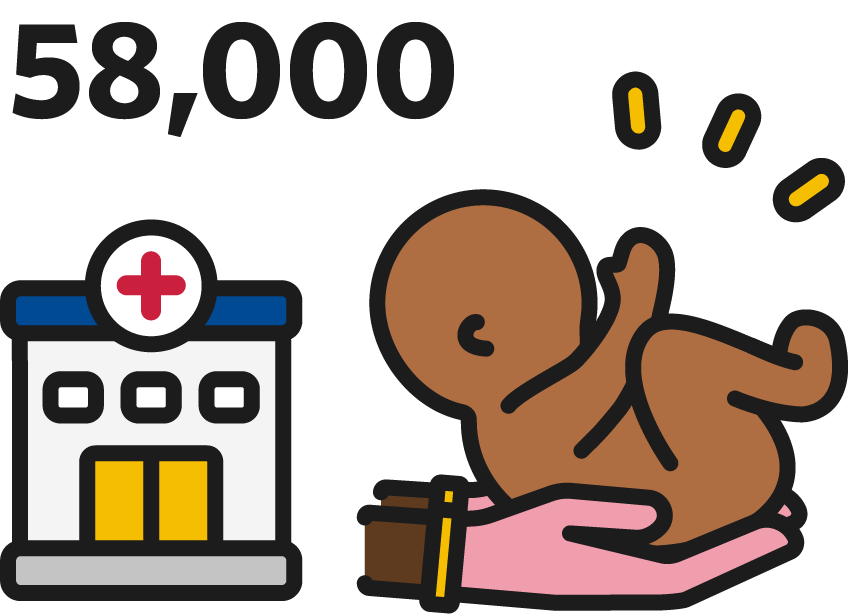
58,000 safe, facility-based deliveries, including 10,000 lifesaving C-sections globally each year.
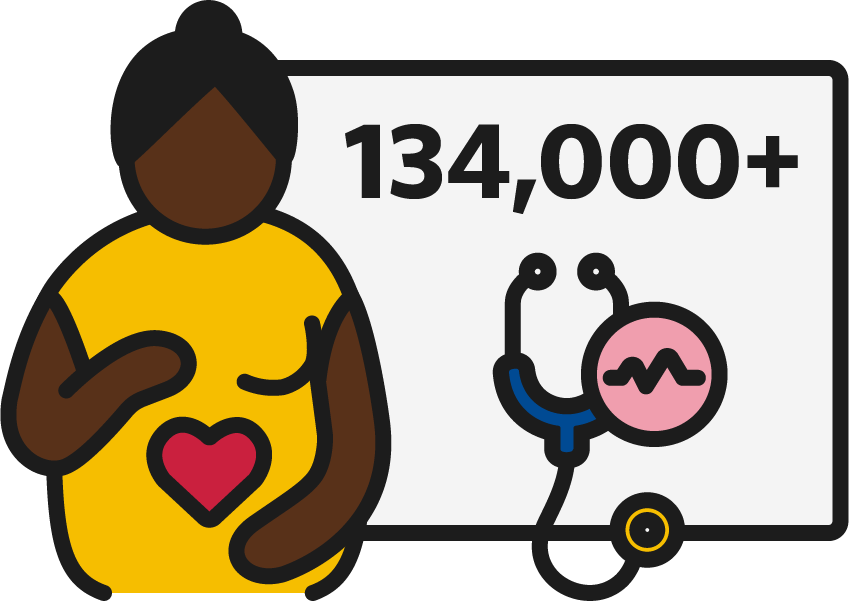
More than 134,000 prenatal care visits provided annually.
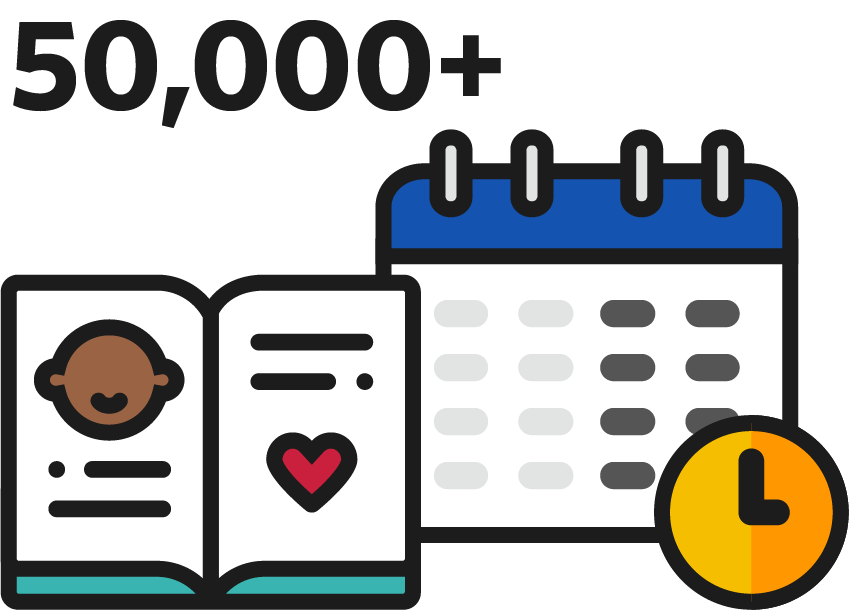
Support more than 50,000 women in starting a family planning method each year.
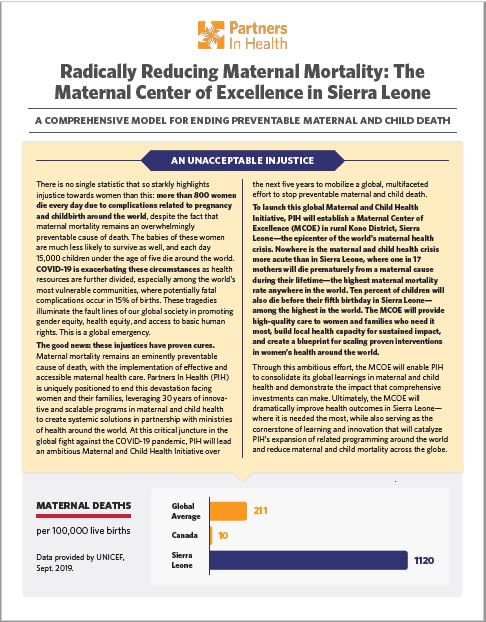
the maternal center of excellence project summary
We are striving to radically reduce maternal mortality in the epicenter of maternal death worldwide, to deliver high quality, human-centered, and respectful care to the women who need it most. Download the summary to learn more about this exciting project.
Make a donation today to support women's health services and strengthen health systems around the world.
Related stories
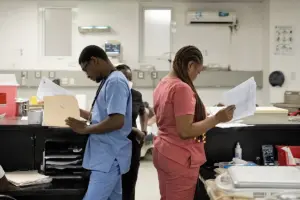
Emergency Medicine Residency Earns International Accreditation in Haiti
Emergency Medicine Residency Earns International Accreditation in Haiti Residency is the third to receive ACGME-I accreditation at Hôpital Universitaire de Mirebalais Posted July 8, 2024 The emergency medicine residency program at Hôpital Universitaire de Mirebalais is recognized for meeting established standards for educational quality. Photo by Mélissa Jeanty / PIH.
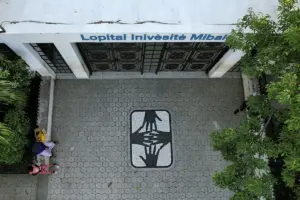
A Commitment to Public Health Strengthened Under the Weight of Adversity
A Commitment to Public Health Strengthened Under the Weight of Adversity Haiti’s Hôpital Universitaire de Mirebalais continues to prioritize patient and staff wellness after armed attack. Posted July 8, 2024 Haiti’s Hôpital Universitaire de Mirebalais (HUM) provides primary care services to about 185,000 people in Mirebalais and two nearby communities.

Providing Mental Health Care for Pregnant Women and Mothers in Peru
Providing Mental Health Care for Pregnant Women and Mothers in Peru Partners In Health has provided mental health care to pregnant women and mothers in northern Lima since 2018 Posted May 28, 2024 Leidith Tinoco, a participant in Socios En Salud’s mental health program for pregnant women and mothers —